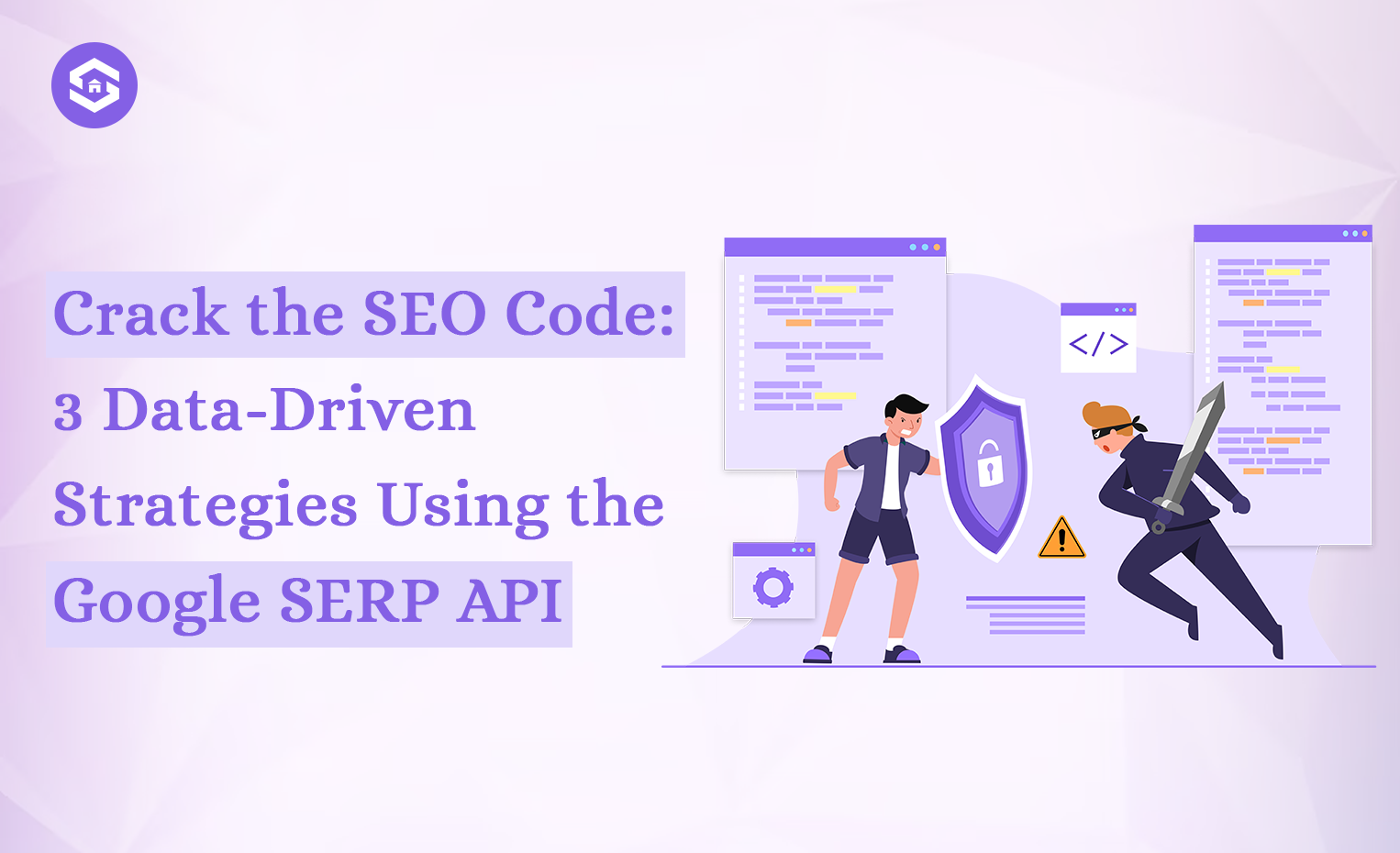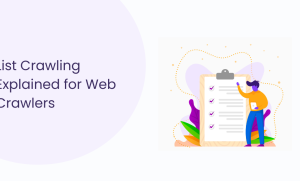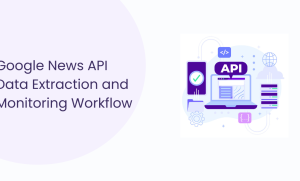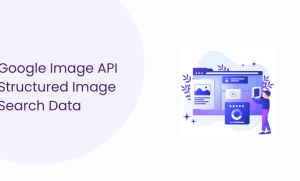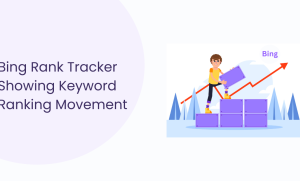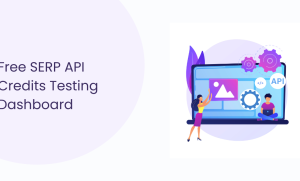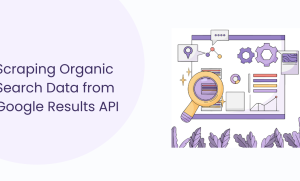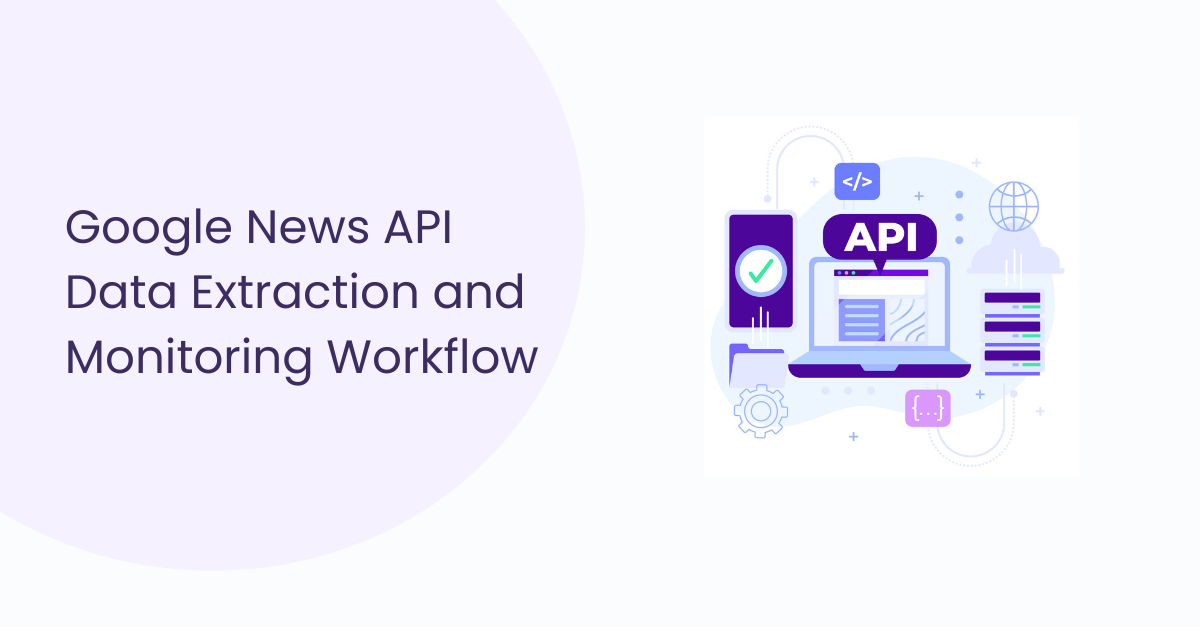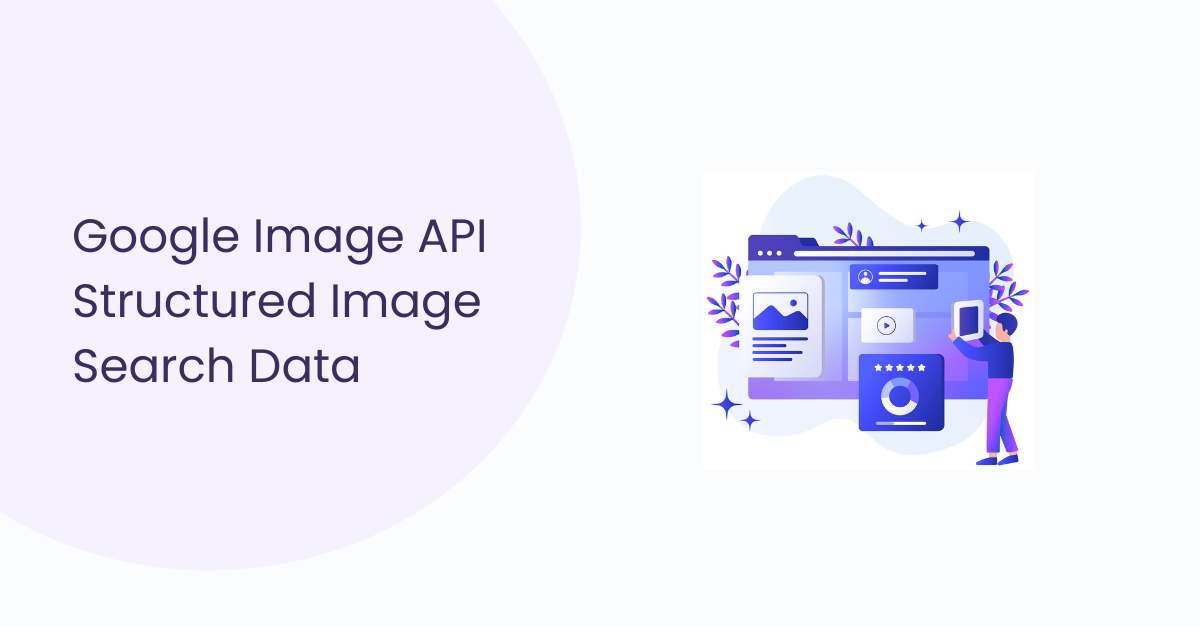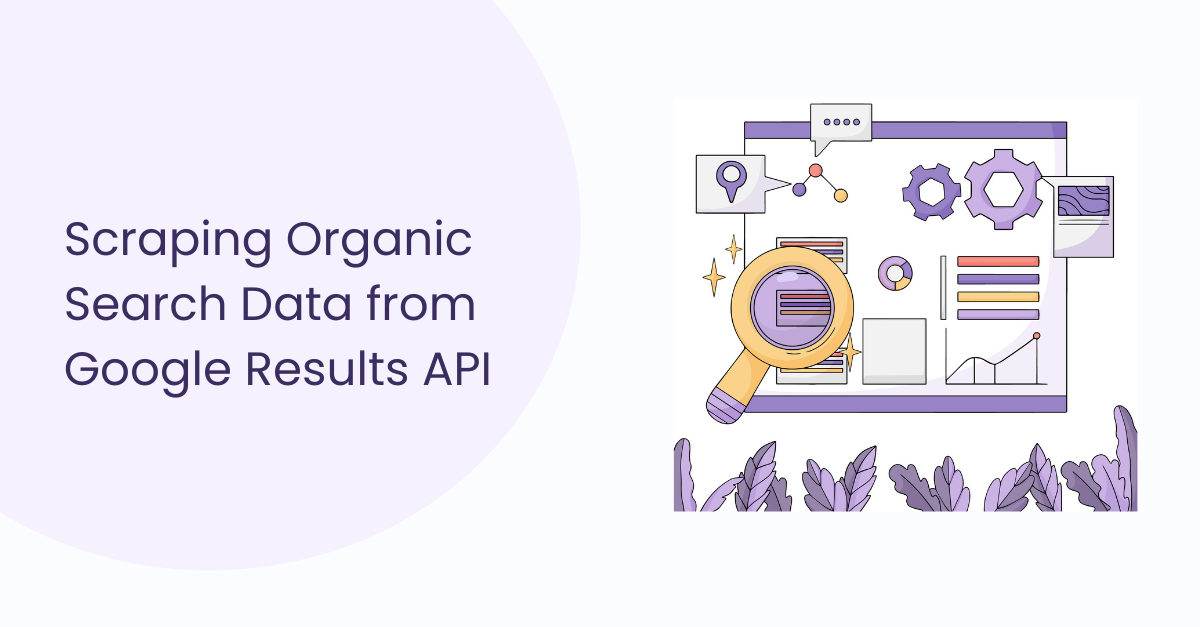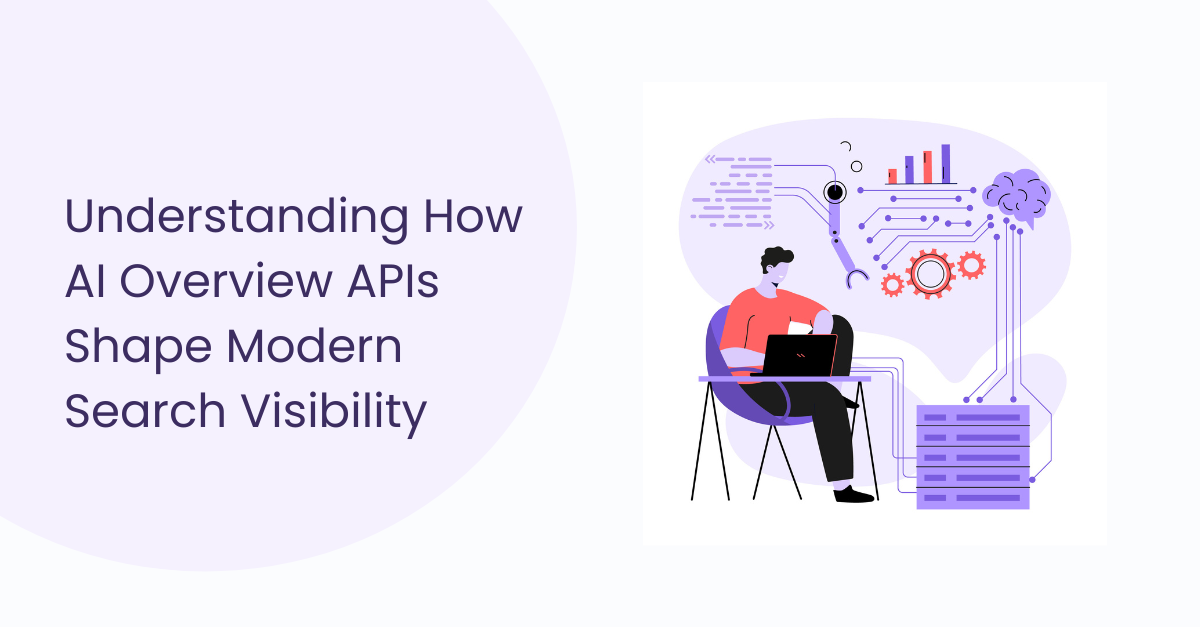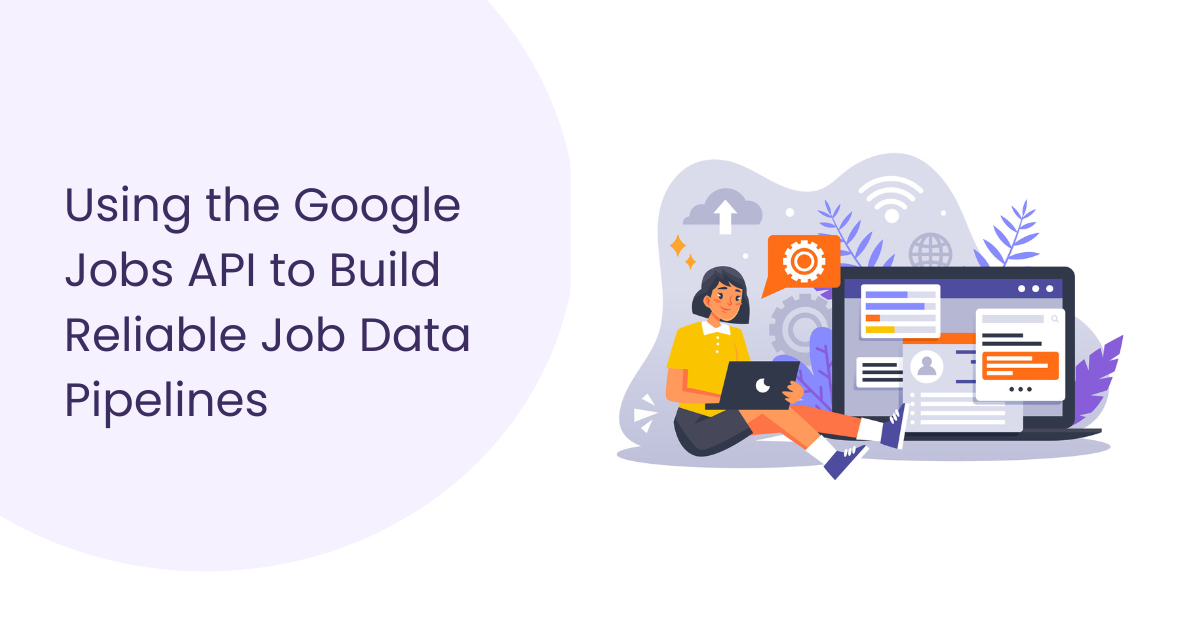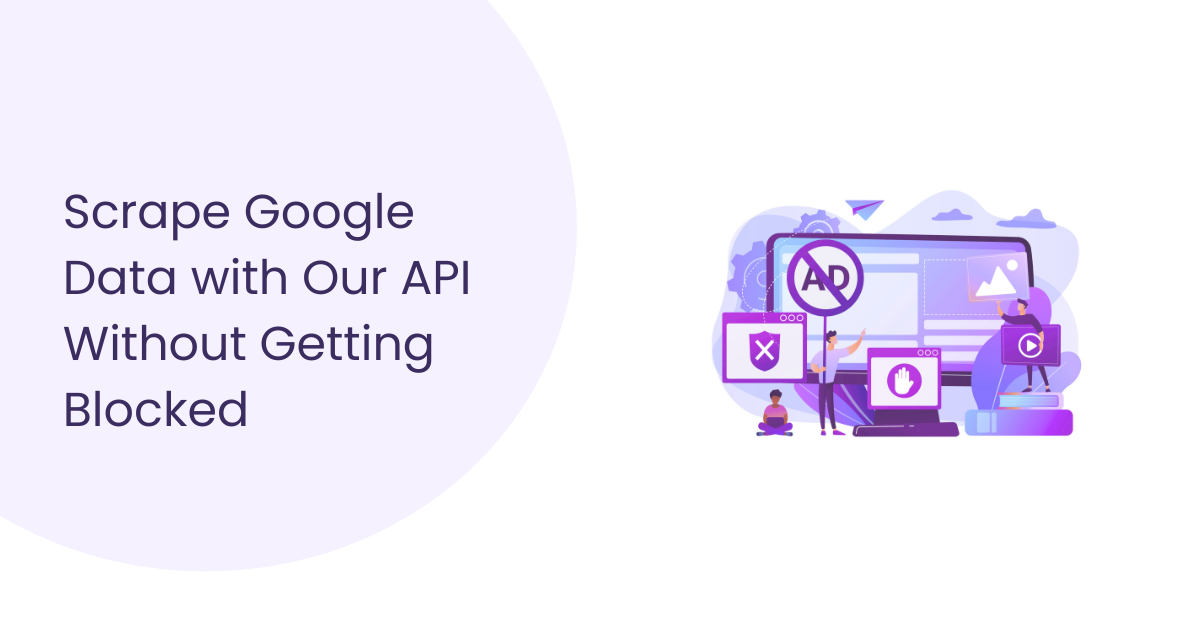Table of Contents
Table of Contents
Imagine having a direct line into Google’s search engine results page (SERP), a real-time window into what users see and how your competitors rank. That’s the power of the Google SERP API, a game-changer for SEO professionals seeking a data-driven approach to online success.
But what exactly is a SERP API, and how can you leverage it to propel your website to the top of search rankings? This blog dives deep into three key strategies that unlock the true potential of the Google SERP API, empowering you to make informed decisions and dominate the ever-evolving SEO landscape.
Understanding the Google SERP API

Before we delve into strategies, let’s clearly understand the Google SERP API.
In simpler terms, it’s a set of instructions that allows programs to communicate with Google Search and extract valuable data from SERPs. Think of it as a bridge between your SEO efforts and the inner workings of Google’s algorithm.
This data can include a treasure trove of insights, such as:
- Keyword rankings: Track your website’s position for specific keywords and monitor competitor rankings.
- Search volume: Gain valuable intel on how often specific keywords are searched for, allowing you to target high-potential terms.
- SERP features: Identify what kind of content appears on SERPs for your target keywords (images, videos, featured snippets).
- Top-ranking content analysis: Analyze top-ranking pages’ titles, meta descriptions, and content structure to understand what resonates with search engines.
By harnessing the power of the SERP API, you can move beyond guesswork and base your SEO strategy on concrete data, giving you a significant edge in the competitive online world.
Strategy 1: Keyword Research on Steroids
Keyword research is the foundation of any successful SEO campaign. But traditional methods often rely on estimated search volume and limited competitor analysis. The SERP API injects a powerful dose of data into the mix, allowing you to:
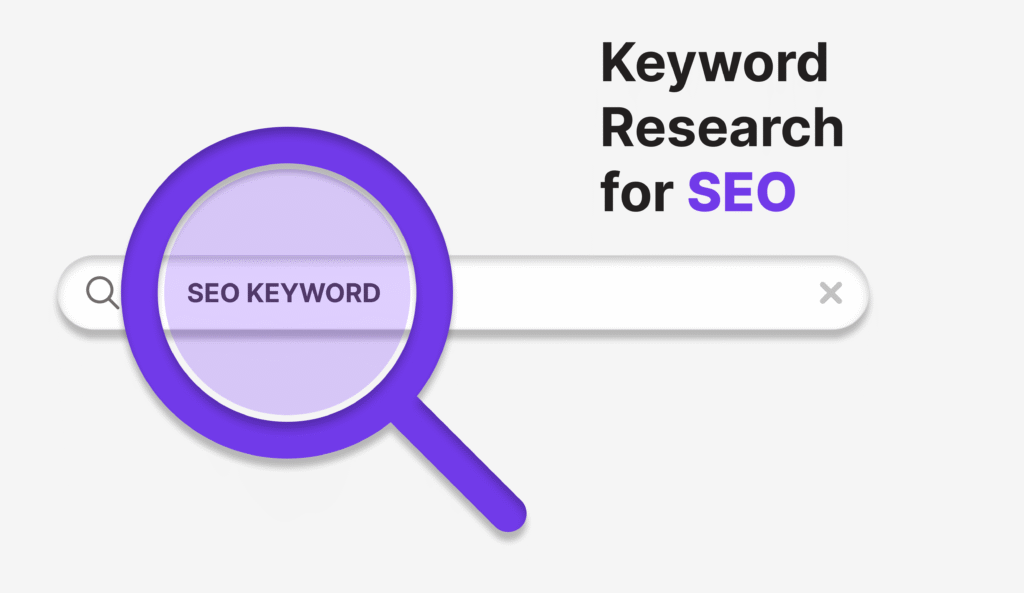
- Discover long-tail keywords: Unearth longer, more specific keyword phrases with lower competition but significant search intent. This helps you target a more qualified audience searching for exactly what you offer.
- Identify trending keywords: Stay ahead of the curve by pinpointing keywords that are experiencing a surge in popularity. This allows you to capitalize on emerging trends and capture early traffic.
- Analyze competitor keyword strategies: See what keywords your competitors are ranking for and identify potential gaps in your strategy. This will empower you to target high-value keywords they might be neglecting.
Imagine the power of uncovering a goldmine of long-tail keywords with high conversion potential or capitalizing on a trending topic before your competitors even notice. The Google SERP API unlocks this level of granularity in your keyword research, setting you on the path to attracting the right audience.
Strategy 2: Competitive Intelligence – Outsmarting the Competition
The SEO landscape is a battlefield, and knowledge is your weapon. The Google SERP API equips you with unparalleled competitive intelligence, allowing you to:

- Benchmark your performance: Track your website’s ranking progress for target keywords compared to competitors. This provides a clear picture of your strengths and weaknesses in relation to the competition.
- Analyze competitor content: Deconstruct the top-ranking content for your target keywords. See what kind of content resonates with search engines and users, and identify opportunities to create even better content.
- Identify backlink opportunities: Analyze the backlinks of top-ranking competitors. Backlinks are like votes of authority in the SEO world, and uncovering these opportunities allows you to build your own backlink profile for a significant ranking boost.
You can gain a strategic advantage by leveraging the SERP API for competitive analysis. You’ll understand your competitor’s weaknesses, identify content gaps to fill, and build a content strategy that surpasses their offerings.
Strategy 3: Content Optimization – Aligning with Search Intent
Content is king, but creating content that resonates with users and search engines is the true art of SEO. The Google SERP API provides valuable insights to fine-tune your content for optimal performance:
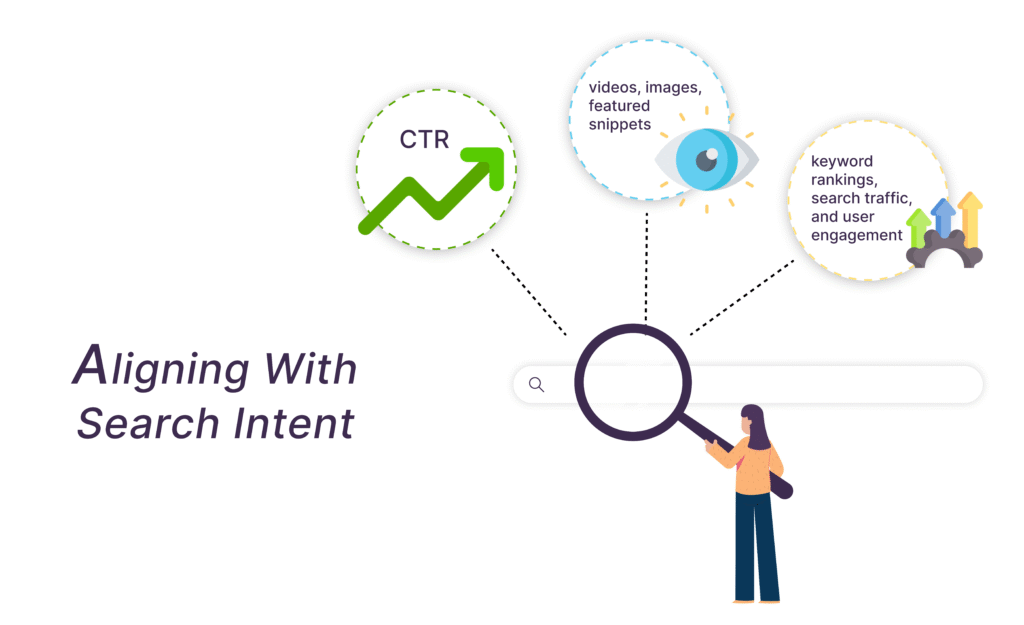
- Optimize title tags and meta descriptions: Analyze top-ranking content to see what kind of titles and descriptions attract clicks. This lets you craft compelling titles and descriptions that entice users and improve your click-through rate (CTR).
- Identify missing SERP features: See what SERP features appear for your target keywords (videos, images, featured snippets). This will allow you to optimize your content to potentially capture these high-visibility features in search results.
- Track content performance: Monitor the impact of your content on keyword rankings, search traffic, and user engagement. This data-driven approach lets you iterate and refine your content strategy based on real-world results.
By continuously optimizing your content based on SERP API insights, you ensure it aligns perfectly with search intent. This means your content ranks well and provides genuine value to users, leading to increased website traffic, conversions, and brand loyalty.
Beyond the Basics: Advanced Applications of the Google SERP API
The potential of the Google SERP API extends far beyond the strategies mentioned above. Here’s a glimpse into some advanced applications for power users:
- Local SEO Optimization: For local businesses, the SERP API can be used to track local search rankings, monitor competitor listings in Google Maps, and identify opportunities for optimizing local profiles.
- Link Building: Identify high-authority websites in your niche that could potentially link back to your content, streamlining your link-building efforts.
- Monitoring Brand Mentions: Track online mentions of your brand across the web, allowing you to participate in relevant conversations and manage your online reputation.
Unlocking the Power: Getting Started with the Google SERP API
The Google SERP API isn’t magic, but it’s a powerful tool that can revolutionize your SEO approach.
However, it’s important to note that Google doesn’t offer a public API for directly accessing search results. But fear not! Several third-party SERP API providers provide access to valuable search data, often with varying features and pricing plans.
Here are some key considerations when choosing a SERP API provider:
- Data Accuracy: Ensure the provider offers reliable and up-to-date search data.
- API Features: Choose a provider that aligns with your specific SEO needs, whether it’s keyword research, competitor analysis, or local SEO.
- Cost and Usage Limits: Consider pricing plans and data usage limits to find a solution that fits your budget and project requirements.
By implementing these data-driven strategies with the help of the Google SERP API, you can transform your SEO efforts from guesswork to a science. You’ll gain a deeper understanding of your audience, identify untapped opportunities, and outrank your competitors, propelling your website to the top of search results and achieving long-term online success.

